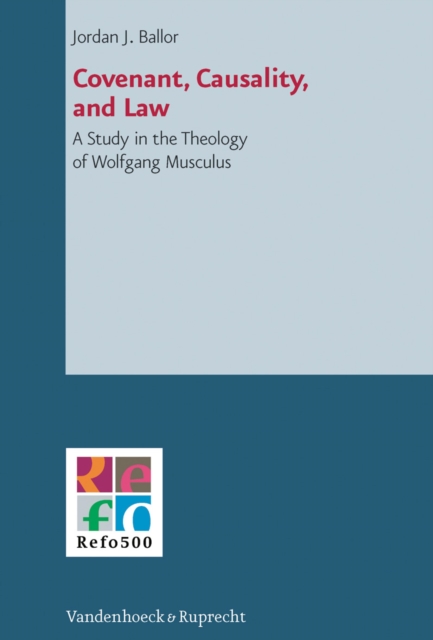
Covenant, Causality, and Law : A Study in the Theology of Wolfgang Musculus PDF
by Jordan J. Ballor
Description
Jordan J. Ballor takes as his point of departure the doctrine of the covenant as it appears in the theology of the prominent second-generation reformer, Wolfgang Musculus (1497-1563), who is perhaps the earliest Reformed theologian to give the topic of the covenant a separate and distinct treatment in a collection of theological commonplaces.
Musculus' teaching on the covenant is characterized by the important distinction he makes between general and special covenants, and it is rooted in his exegetical work on the book of Genesis.
Where Musculus' Loci communes demonstrate his antispeculative, soteriologically focused and pastorally driven approach, his exegesis provides fulsome guidance in the study of Scripture.
This examination of Musculus' views on covenant and related doctrines is followed by explorations concerning causality and metaphysics.
It concludes with considerations on law and social order.
This book is the first full-scale study to place Musculus' theology within its broader intellectual context and to focus on Musculus' theology as found both in his Loci communes and in his extensive and voluminous exegetical work.
Musculus' positions on doctrines related to covenant, causality and law reveal the eclecticism of Reformed reception of medieval traditions.
The final section of this study places Musculus within the later development of Reformed orthodoxy in the 16th and 17th centuries, concluding that Wolfgang Musculus is a significant and often-overlooked figure worthy of further consideration.
Information
-
Download - Immediately Available
- Format:PDF
- Publisher:Vandenhoeck & Ruprecht
- Publication Date:18/04/2012
- Category:
- ISBN:9783647550367
Other Formats
- Hardback from £93.49
Information
-
Download - Immediately Available
- Format:PDF
- Publisher:Vandenhoeck & Ruprecht
- Publication Date:18/04/2012
- Category:
- ISBN:9783647550367






